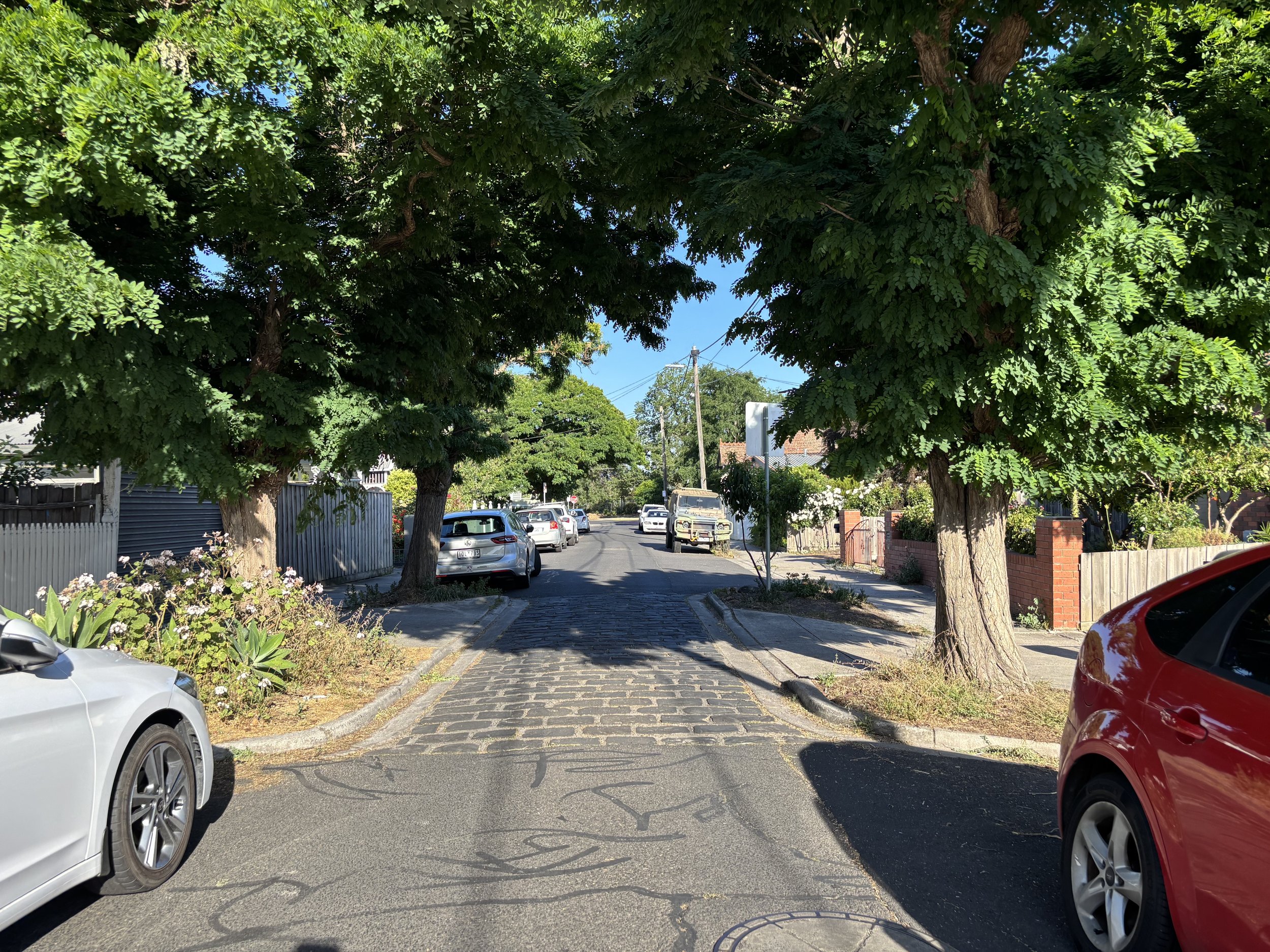
Safer Speeds
Life at 30km/hr: why reducing speeds to could be the key to safer streets for everyone.
What’s it about?
30km/h speed limits on local residential streets could reduce the Australian road death toll by 13%.
Speed limits are a critical tool in reducing road safety incidents, particularly for pedestrians and cyclists. Research shows that the risk of fatality significantly increases at speeds above 30 km/h. Seem too slow? Well, lower speeds not only reduce collision severity but also drastically shorten stopping distances— A typical stopping distance when travelling at 30km/h on a reasonable road surface is 19 metre, compared to 37 metres 50km/h [1].
By adopting safer speed limits in urban and residential areas, as some cities have done in selected pockets, Australian cities can enhance safety, but also create the conditions needed to help people get out of their cars, by make streets more conducive to cycling and walking.
Watch Videos
Explore road safety topics in 100 seconds or less.
Intersection Design Guide
What we can learn about intersection safety from this Melbourne Example
30km / hr Speed limits
Why some Councils are implementing them, and the unexpected benefits.
Australia’s Most Walkable Suburb
What really makes a suburb
walkable? 🚶♂️
Benefits
Who Benefits from Safer Speeds?
Improved Survival Rates
At 30 km/h, the risk of a pedestrian dying in a crash is reduced to under 10%, compared to 90% at 50 km/h [1]
Better Walking Environments
Walking is key to making cities liveable and safe. Slower speeds create streets particularly make it safer for children to work to school and vulnerable road users.
Sharper Driver Reaction Time
In an emergency, the average driver takes about 1.5 seconds to react [2]. Stopping distances increase exponentially the faster you go.Lower speeds provide drivers with greater time to react to unexpected hazards, significantly reducing crash rates
Economic Benefits
Implementing 30 km/h zones can lead to significant savings in healthcare and societal costs related to road trauma, with reduced crash severity and improved survival rates [4]. It’s estimated the economic benefits could be $3.5 Billion a year [7].
Safer, Connected Communities
Reduced traffic speeds creates the baseline conditions to making streets feel safer and more inviting for pedestrians and cyclists. With more people and bikes around, traffic also slows. This enables vibrant, connected neighborhoods that are accessible for everyone [3].
Safer Speed Examples
Councils across Australia are adopting 30km/hr speed limits
Safer Speeds in Inner Melbourne
The inner city council City of Yarra in Melbourne is trialling 30km/h on all streets except major roads in the suburbs of Fitzroy and Collingwood. Reducing road incidents involving pedestrians was a driving factor on these busy streets, where vulnerable road users were involved in 90 per cent of collisions in the two inner-city suburbs [5]. The decisions were also motivated by the opportunity to create more friendly and welcoming places, especially for bikes.
Safer Speeds in Manly
The beachside suburb of Manly, New South Wales, has established 30 km/h speed zones to improve safety and support the community [1]. These zones include school zones, the commercial center, and the beachfront. A 30 km/h zone was first implemented in 2019. The changes have made streets safer for pedestrians and cyclists while fostering a more relaxed, community-focused atmosphere.
Helpful Guides
Love30, A campaign for safer speeds.
30please, A campaign for safer speeds in Australia
Stopping Distances, Department of Transport, Queensland
Movement and Place, Street Design Guide, NSW
Space4CyclineBNE, Safer Streets Campaign
References
[1] Transport for NSW, Towards Zero Campaign, Speeding
[2] Queensland Government, Department of Transport, Stopping distances: speed and braking
[3] Transport for NSW, Streets as Shared Places. ‘Evaluation and Implementation of Shared Spaces in NSW: Empirical analysis of shared road infrastructure - Stage 2a Final Report’ February 2024
[4] Transport Accident Commission, Staying Safe Guide
[5] Bicycle Newtwork Victoria, ‘30km/h speed limits expand across Fitzroy and Collingwood’ May 2024
[6] McLaughlan, M et al ‘Busted: 5 myths about 30km/h speed limits in Australia’ The Conversation, May 2021
[7] van den Dool, D et al ‘Safe-Street Neighbourhoods: the role of lower speed limits’ Journal of the Australian College of Road Safety – Volume 28 No. 3, 2017



